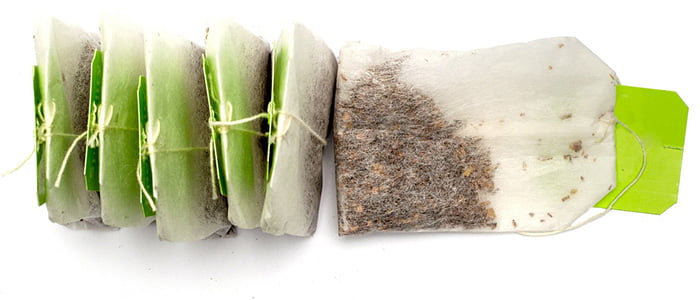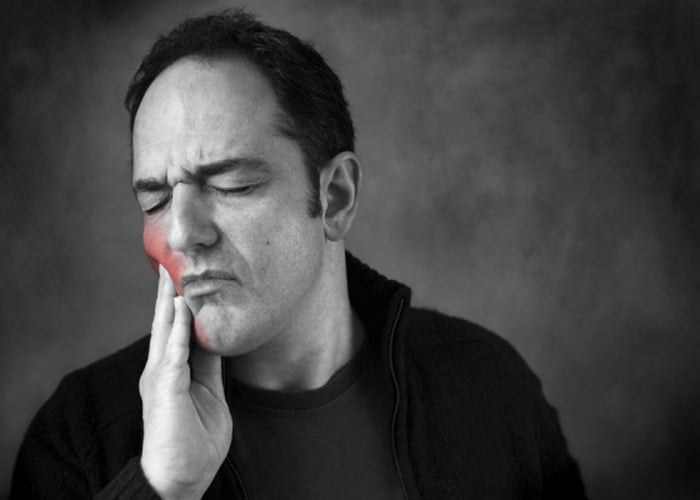Bleeding is a part of the healing process after tooth extraction. However, sometimes the wound can’t form a blood clot, causing bleeding.
How to stop bleeding after tooth extraction? Your dentist will help you with this problem. Fortunately, you can perform some steps to do it yourself.
This article will show you the fastest way to stop bleeding using the simplest tips. Let’s see what you can do for your wound!
Causes Of Bleeding After Tooth Extraction
Although bleeding is normal, excessive or protracted bleeding can be frightening. Here are possible reasons for this problem:
Inability to form a blood clot
A blood clot should develop at the site of surgery to protect the nerves and bone underneath. If it can’t, there will be bleeding. This issue is common if you drink through a straw, rinse your mouth vigorously, or smoke after the tooth extraction.
Dislodgement of the blood clot
If the blood clot gets dislodged, it will reveal the nerves and bone underneath, causing bleeding.
You may experience it if you eat crunchy and hard foods or participate in strenuous physical activities since they will stimulate blood flow to your mouth.
Infection
Infection may make your wound bleed because the bacteria make your gum tissues more sensitive and vulnerable to bleeding.
Gum disease
If you have gum disease, your gum tissues can be more likely to bleed after the surgery. It’s because the disease will weaken the gums and increase their sensitivity.
Medical conditions
Some medical problems, like hemophilia, liver illness, or leukemia, might raise the risk of bleeding after tooth removal.
Blood-thinning medications
Blood-thinning medicines like warfarin, aspirin, or heparin may interfere with coagulation. They will increase the likelihood of bleeding after tooth removal.
Read more: How To Reduce The Cost Of Wisdom Tooth Extraction?
How To Stop Bleeding After Tooth Extraction?
There are many ways to stop bleeding after tooth extraction. We will discuss the most effective and straightforward methods here.
Gauze on the treated site
Your dentist may advise you to use gauze to stop bleeding after the tooth extraction. You need to put the gauze on the wound and bite it down for about one hour. Ensure that the gauze can cover the wound completely.
Please note that your wound will continue to bleed if you don’t use enough pressure to bite the gauze. Also, remember to change the gauze every 30 minutes. You can remove it once the blood forms clots.
Warm tea bag
Black tea has the best effect on your wound because it contains more tannin. Here is how to use a black tea bag to stop bleeding after the extraction:
- Steep the tea bag in boiling water for two to three minutes.
- Remove the bag from the water and allow it to cool down for a few minutes.
- Put the bag on the treated area.
- Press it gently for five minutes.

Ice cubes
The amount of time the gum bleeding after dental surgery may extend because of the warm environment inside your mouth.
Some people apply ice cubes packed in gauze to the area where their teeth are extracted to cool them and enhance the blood’s ability to heal.
Please remember that you should wrap the ice cubes in the gauze. Then, the ice cubes can cool your wound while not touching it directly.
No strenuous activity
Strenuous activities will make your heart pump more forcefully and quickly, making it difficult for blood clotting.
If you engage in rigorous activity after pulling your tooth, bleeding will occur. For example, lifting high weights within 72 hours after the treatment might result in excessive bleeding.
If you want to work out, choose mild activities instead. You have to wait a few days to return to your regular workout level.

Ankaferd Blood Stopper
Ankaferd Blood Stopper is known as a herbal hemostatic medicine that speeds up blood coagulation. After tooth extraction, some dentists recommend the stopper to their patients.
This medication has been popular in Turkey for years. When put on the extraction area, it can stop the bleeding in a few seconds.
The National Institutes of Health state that Ankaferd Blood Stopper’s herbs have a special effect on blood. They will quickly cause the tissues there to clot.
Keeping the head elevated
When you sleep, you often lay your head flat on the bed. Sadly, this habit will cause the treated site to bleed more and longer.
To stop excessive bleeding when sleeping, you should use a pillow to keep your head elevated higher than your body. This posture will reduce bleeding.
Aminocaproic Acid
Aminocaproic Acid, approved by FDA, is a prescription drug used to treat bleeding problems. Thanks to the drug, blood enzymes won’t stop blood from clotting, stopping gum tissues from bleeding effectively.
Since Aminocaproic Acid is a fluid form, you can pour it on gauze and place it directly on the treated area. The bleeding will stop within 30 minutes. If not, repeat the steps.
Unfortunately, Amicar must be prescribed. However, emergency rooms may offer you this medication if you are in an emergency condition and can’t access your dentist.
No straws or spits
After tooth extraction, you shouldn’t use a spit or straw since they will disturb the blood clot that has formed at the extraction area.
Using a straw or spit causes your mouth to generate a suction force. It can tug on the blood clot and push it away, resulting in a dry socket.
Blowing balloons will have the same effect because it creates suction in your mouth. Smoking is also another common cause of it.

No smoking
The substances in cigarettes can prevent blood clots from forming. Moreover, smoking may reduce blood flow to the gums, impeding the healing process.
Smoking also raises your chance of getting a dry socket, a painful disease that can happen after tooth removal.
Whenever the blood clot that develops after an extraction dissolves, it will expose the underlying nerves and bone. And we call this a dry socket, which may cause severe discomfort.
Read more: Can you get dental fillings during pregnancy?
Taking care while eating and drinking
Your oral area is recovering. Hence, you have to pay a lot of attention to your drinking and eating habits. Here are some things you should follow to avoid bleeding after tooth removal:
- Eat soft foods that don’t need much chewing. Yogurt, mashed potatoes, and soup are the best options.
- Do not eat spicy or hot food in the first few days after the treatment because they will hurt the extraction site.
- Avoid crunchy, hard, and chewy food, like popcorn, gum, and nuts. They may dislodge the blood clot.
- Try not to chew food on the extraction site.
- Drink milk, water, and juice to stay nourished and hydrated.
- Do not rinse your mouth too forcefully.

Homemade Remedies To Stop Bleeding After A Tooth Extraction
Homemade remedies can also help prevent or stop bleeding after tooth extraction. Warm salt water and clove oil are the most commonly used methods.
Warm salt water
You may often use salt water to clean your mouth. Interestingly, it will help stop bleeding and ward off infection after tooth extraction.
This method is cheap and easy to do. You should rinse your mouth with salt water in this manner for several days. The instructions are as follows:
- Put one teaspoon of salt into the water.
- Stir the water until the salt dissolves.
- Take some salt water into your mouth.
- Swish the salt water in your mouth gently. Try to focus on the wound.
- Spit the mixture and repeat those steps a few times.
Clove oil
Clove oil has both analgesic and antiseptic qualities in clove oil. These substances make the oil highly efficient in reducing pain after tooth extraction.
To use clove oil to stop bleeding, please follow these guidelines:
- Mix the clove oil and some drops of olive.
- Immerse a cotton swab in the mixture.
- Dab the wet swab on the wound and keep it in place for about one minute. It will help absorb the oil into the gum tissues.
- Repeat those steps every two hours to completely stop the bleeding.

Conclusion
If you need an emergency dentist in Marysville, Ohio, do not hesitate to contact our office for immediate assistance. We are here to help you with any dental emergencies you may have.
Everyone may experience this issue. So do not panic if you face the same thing. For any further information, please feel free to ask.
Thank you for reading!



